Deborah Humble In Conversation
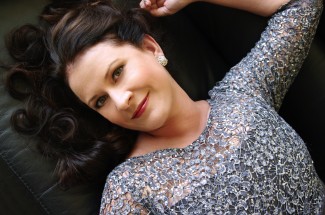
Mezzo-soprano Deborah Humble is one of Australia’s most successful international artists. Based in Hamburg, her engagements in 2015 include Erda in Das Rheingold with the Hong Kong Philharmonic, Erda in Siegfried at Boston Symphony Hall, her debut as Brangäne in Tristan und Isolde in Mexico City, Judith in Bluebeard’s Castle in Melbourne, Elgar’s Sea Pictures at the Britannia in Bamberg Festival, Elektra with the Hamburg State Opera, Parsifal in Birmingham and Mahler’s Symphony No. 8 in Singapore.
As a former Principal mezzo-soprano with Opera Australia, her roles included Clarissa in The Love for Three Oranges, Dido in Dido and Aeneas, Sonyetka in Lady Macbeth of Mtsensk and Mercedes in Carmen.Other Sydney appearances include Pauline in The Queen of Spades with the Sydney Symphony Orchestra, conducted by Vladimir Ashkenazy, and Mahler’s Symphony No. 3 conducted by Johannes Fritzsch,
In 2006, Deborah Humble joined the Hamburg State Opera,where her international breakthrough in 2008 was as Erda in Das Rheingold. Other major roles there have ranged from the Baroque repertoire to those in operas by Richard Strauss, Hans Werner Henze, Puccini, Tchaikovsky and Wagner.
Now a freelance artist, she is back at the Hamburg State Opera for Der Ring des Nibelungen. Ms Humble sings regularly in concert. Her recordings include The Love for Three Oranges, available on Chandos and Der Ring des Nibelungen, available on Oehms CD.
Deborah Humble shares her insights with SoundsLikeSydney:
Your last engagements included Erda in Das Rheingold in Hong Kong with the Hong Kong Philharmonic and 1st Maid in Elektra at the State Opera of Hamburg where you also understudied the great Agnes Baltsa. What were these experiences like?
The Hong Kong Philharmonic began its new Ring Cycle in January, a concert version which will be presented over the next four years, conducted by Maestro Jaap van Sweden and recorded for the Naxos label. I was delighted to sing the role of Erda and can honestly say I have never been in such a complete Rheingold cast; I was truly impressed by the uniformity of the singing and the competence and expression of the orchestra. Performing the Ring Cycle is a benchmark for any company and this project is something of which the orchestra and its administration and the Hong Kong artistic public can be justifiably proud. I was royally entertained by friends there and thoroughly enjoyed meeting many new people. My colleagues and the staff were delightful and it made for a wonderful artistic and personal experience.
In February I was guest artist in Elektra at the Staatsoper Hamburg with Lise Lindstrom as Elektra, conducted by Simone Young. I have performed 1st Maid many times, so the real attraction was the opportunity to learn and coach the role of Klytamnestra performed by Agnes Baltsa. I find learning Strauss extremely challenging. When I first opened the score and began to listen to the music I felt it was overwhelmingly complicated. I could only think ” How the hell am I going to learn this?” It’s not only melodically complicated but rhythmically challenging too. Little by little it became clearer and by the end of the process I realised that musically, even mathematically speaking, it’s very logical and singable. I had been told by many that a beautiful voice is not required to sing Klytamnestra but still being very young for the role, I approached it with beautiful tone in mind and then tried to add the expression and nuance required. The benefit of working with Simone Young is that she knows the score intimately and her conducting tells you everything you need to know about performing the part. Agnes Baltsa is a consummate professional after so many years at the top of the profession. She is over 70 and still singing well which is a lesson in itself. The stories she can tell! It was a privilege to meet her and work with her although at times also rather a humbling and intimidating experience.
Simone Young will be leaving the Hamburg State Opera this summer after 10 years at the musical and administrative helm. What does this mean for you and do you plan to stay in Hamburg?
The Elektra performances were theoretically my last in Hamburg after nearly 10 years at the opera here, first on a full-time contract and then as a guest artist. Walking out of the opera house which has played such a massive role in my life was a strange feeling. I have never made a secret of the fact that I feel that my time in Hamburg has made me into the artist I am today. Everything I have learned, especially about the German operatic repertoire and language, I have learned from the best in the field at the opera here. I am hugely grateful to have had the possibility to work with some of the world’s most talented operatic artists. As an Australian singer one could hardly have dreamt of a better chance and I have tried to make the most of every opportunity. As for staying in Hamburg, yes, I plan to keep my base here for the moment. I am very often travelling away from Germany but I enjoy life at ” home” when I am here, particularly my personal and sporting involvement with a lovely network of friends who have become an important part of my life. I have moved around a lot in the last years and lived in London, Paris, Sydney and Bologna so although I sometimes entertain the idea of moving to a great musical city such as Berlin or Vienna or Milan, I have no immediate plans to do so.
You will be performing a lot of Wagner in April and May including an important role debut as Brangaene in Tristan and Isolde in Mexico City. How do you prepare for major engagements like these?
At the end of April I sing Erda in Siegfried for the Boston Philharmonic Youth Orchestra conducted by Benjamin Zander at Symphony Hall. It’s an engagement I am looking forward to very much. I am happy to be part of a great cast and being reunited with Stefan Vinke as Siegfried in what is an important event in the orchestra’s history. Erda is a role that I am now very comfortable with and, despite being rather low, it’s always a pleasure to sing something that feels so familiar. Then I fly to Mexico City for concerts of Tristan and Isolde with the Orquestra Filharmonica de la UNAM conducted by Jan Latham Koenig. I’ve not sung Brangaene before, so a few weeks ago I began memorising a couple of pages a day and consulted a language coach and a singing teacher to facilitate the process. I have to say that after Klytamnestra it all seems very straight forward! I did take a short holiday but my score was always with me and I have studied on trains in Switzerland, a cable car in Austria, even at a restaurant in Vienna. It makes for interesting conversation when people come up and ask who I am and what I’m doing. More often than not I fall asleep with the text going through my mind. Finally, I go to the UK for a concert performance of Parsifal with the City of Birmingham Symphony conducted by Andris Nelsons. He has a fine reputation as a marvellous conductor of Wagner so I am delighted to be working together. It’s going to be a challenging month but I hope also a very rewarding one.
Was it always clear that your voice was suitable for Wagner and how do you define a Wagner voice?
I always had quite a large voice and many people said very early on that one day, I would sing Wagner. Obviously a voice of a certain size with good placement, focus and staying power is required for Wagner as the orchestral forces can be quite massive. Nonetheless, as a wise singing teacher once said to me, “It is not always necessary to sing loudly, it is necessary to sing cleverly.” Wagner also contains moments of great lyricism, beauty and quiet and it is important to know when to hold back and express these qualities. Not only does this give the dramatic moments more impact but in the larger roles it is imperative to know where you can save yourself vocally. A singer of Wagner must have an understanding of the textual elements of the special Wagner language; not only with regard to pronunciation but also use of his devices like alliteration, consonants, subtext and leitmotif connections. This is perhaps the biggest challenge for a singer whose first language is not German. Then there is all the associated historical, political and cultural inference. I find the repertoire fascinating for this reason.
You don’t only sing Wagner, in fact you have a very diverse repertoire. Can you tell us something about your other engagements for 2015?
It’s quite a wide-ranging repertoire. In April I will be performing Elgar’s Sea Pictures at the inaugural Festival of British Music held in Bamberg, Germany. I love this cycle of songs and it is such a pleasure to sing Lieder as opposed to opera occasionally, although two of the songs in this cycle are rather operatic in nature. It is also lovely to sing in English; I can’t remember the last time I sang in my native language. I have a couple of different Verdi Requiems in the UK. This piece is one of my favourite works to sing in the entire concert repertoire. It gives me goosebumps. The sheer volume of sound that surrounds you from the orchestra and choir can be quite overwhelming. I sang one performance at Southwark Cathedral in London and another at the Sage, Gateshead which is quite an extraordinarily designed concert hall. I will also sing my first Mahler Symphony No. 8 in the Esplanade Theatre in Singapore which is very exciting. I love Mahler and this piece was one of the first things I did as a student chorister years ago in the Sydney Opera House under Charles Dutoit. I am also looking forward to singing Judith in Bluebeard’s Castle by Bartok in Melbourne.
You have relentlessly pursued musical excellence in your career and are arguably the leading Australian mezzo-soprano of your generation. What sacrifices have you made and what kind of personality does it takes to get there?
It’s very gratifying after years of study, hard work and perseverance to be recognised as a professional success. The better I get the more enjoyable the work is and I really feel my best is yet to come. In the beginning everything is tough; if you can find work every role is a debut. When your technique is still developing you worry about high notes, low notes and every note in between. I was a late developer vocally speaking and I spent a long time obsessing about whether I was ever going to fulfill my dreams. At one stage in my late twenties, it seemed as though everyone I knew was singing professionally except me. I spent a decade as a classroom teacher and having singing lessons on the weekends. It was vocally and physically tiring and frustrating but now I am perhaps even more grateful for what I do and what I have achieved. Now, I am much more relaxed, and, though still ambitious, I realise that a lot of things happen in their own good time. My recipe for success with everything in life has always been “preparation plus opportunity.” In this profession a bit of luck at the right moment goes a long way too. I guess that answers the question about personality requirements for this job: patience, persistence, self-motivation. An ability to accept criticism without taking everything personally is essential. As a very sociable person I have also had to learn to spend time alone. Learning music is a solitary task as is travelling all over the world, living in hotels and apartments and constantly maintaining good vocal and physical health. Ultimately, I love what I do and any sacrifices are worthwhile. Every job has its pros and cons and ups and downs. But if a secure financial and domestic existence is what you crave then this is not the career to choose.
What advice would you give to aspiring young singers of today?
I would say that everyone’s path is different. Whether you seek a top solo career, aspire to sing in a professional chorus or pursue a different profession entirely and sing for pleasure, there is no such thing as an overnight success. Be prepared to work hard and consistently, sometimes for years without any financial or professional reward. If an international solo career is what you want, make sure you want to live abroad, travel constantly, be away from your family and friends, commit to learning one or more foreign languages and deal with a totally new way of life. You also have to find financial support for the associated studies which continue throughout a career, make applications, attend auditions, find an agent. You have to understand publicity and promotion, use social media, look your best and sell yourself to managements. At a certain level singing and your voice are only part of what make you a successful artist, albeit the most important part.Be intelligent and know your own voice. Heed useful advice and discard the rest. Learn to know the difference. Listen to singers you admire and ask questions of your more experienced colleagues who will be mostly happy to help. Be true to yourself and be happy for the success of others. Try to find your own trajectory and not compare yourself with your colleagues and friends. Be grateful for the chance to express yourself through the joy of music but don’t forget to have a life outside music. Singing is wonderful but it is not the be all and end all. Embrace other aspects of life because these experiences will inform you as an artist. Find a balance in all things.
SoundsLikeSydney©

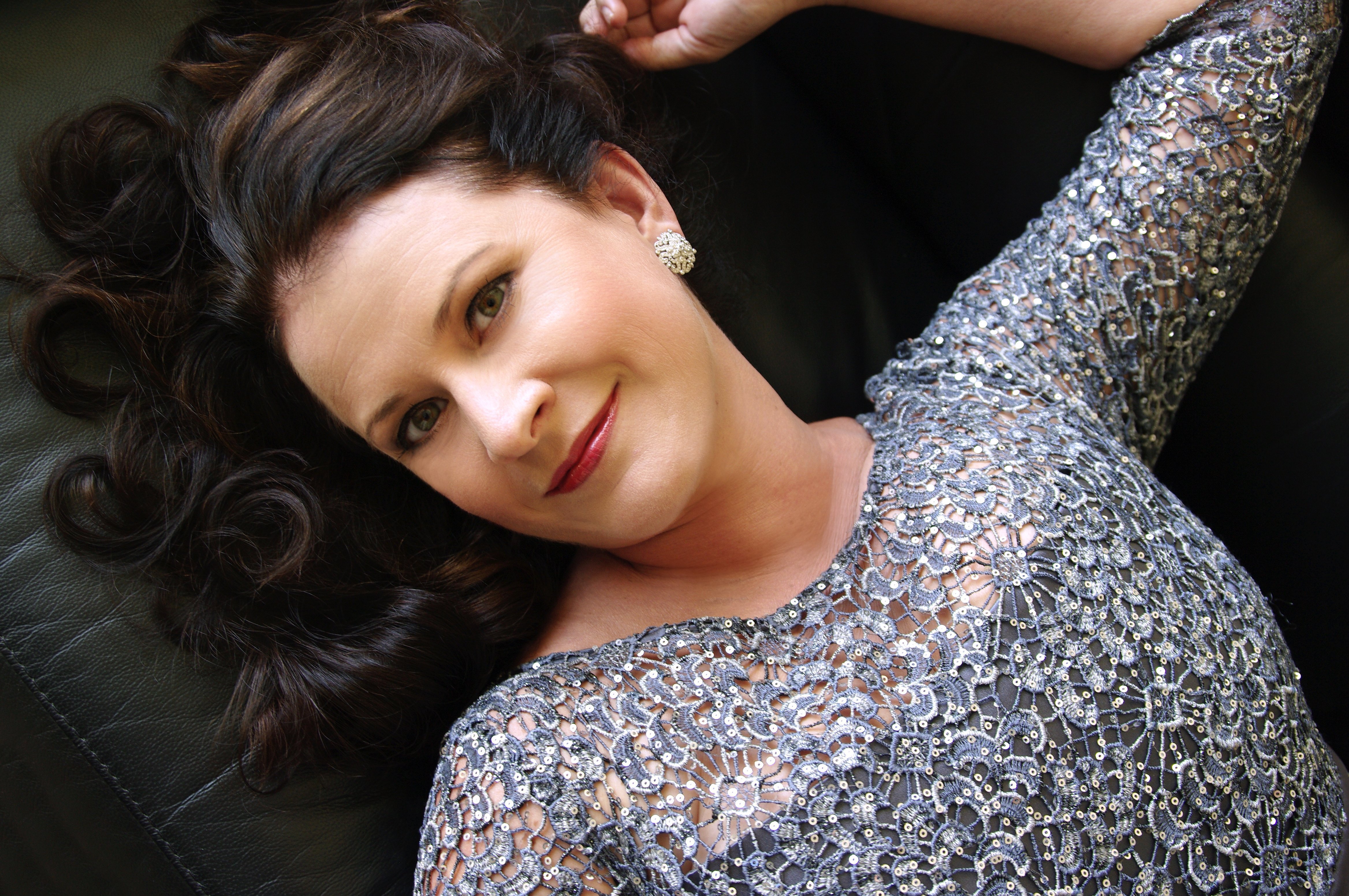
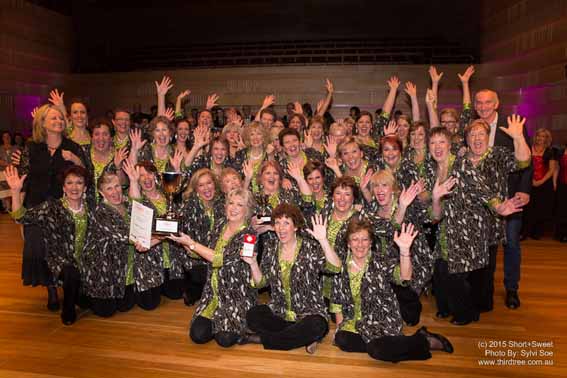
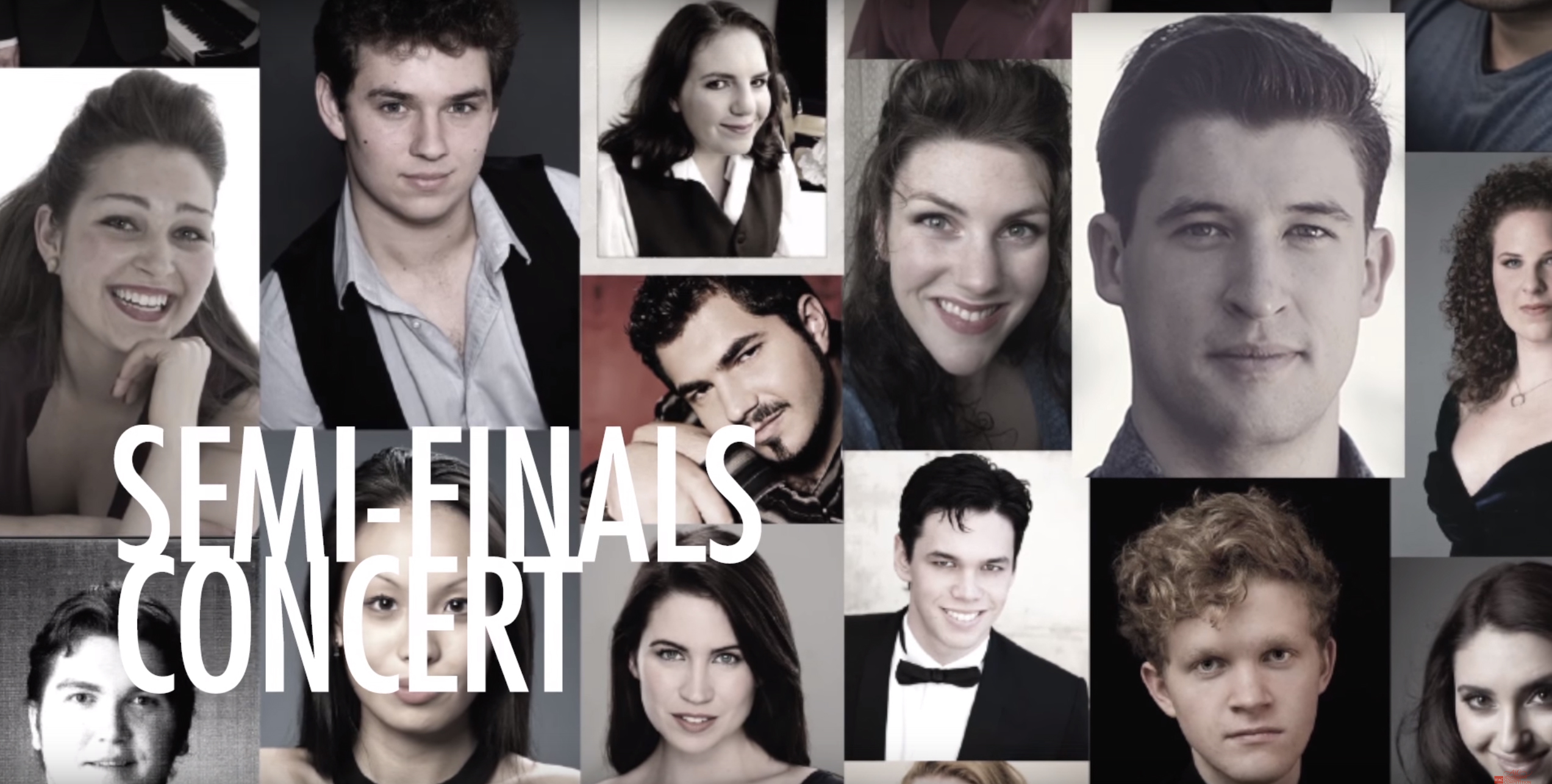
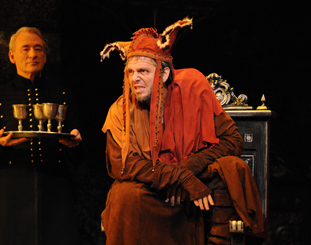
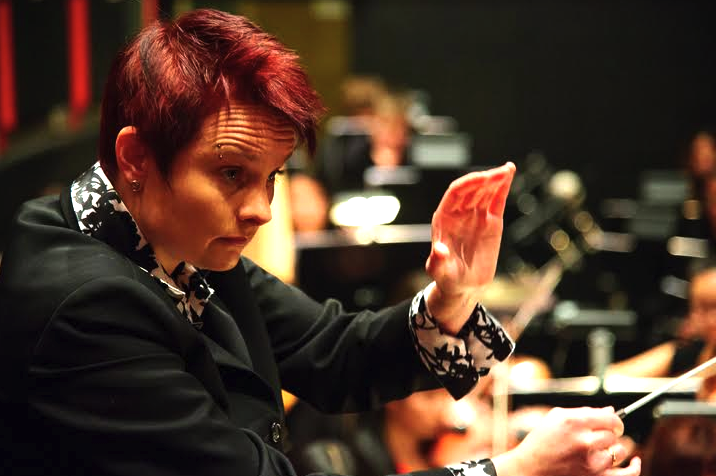
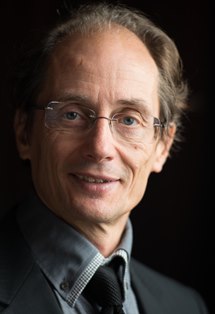
One Comment